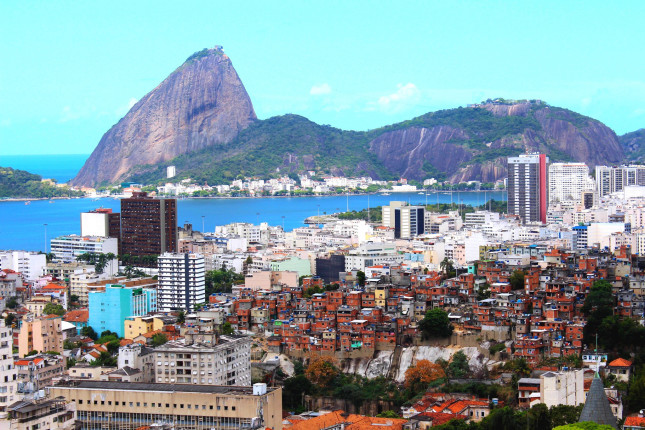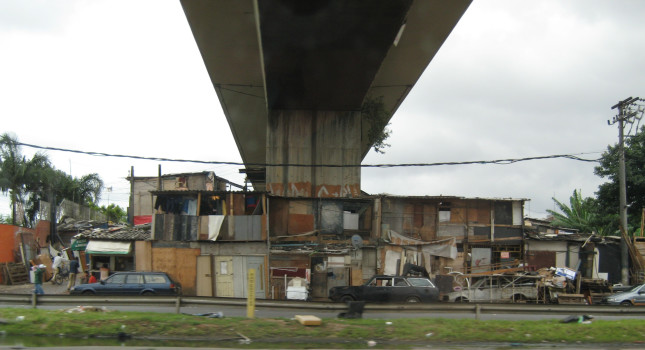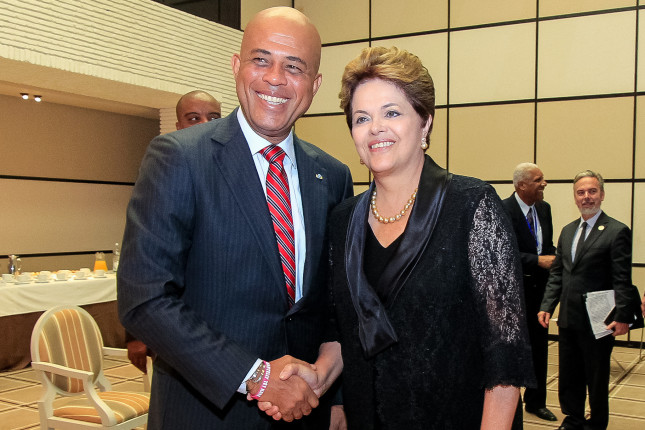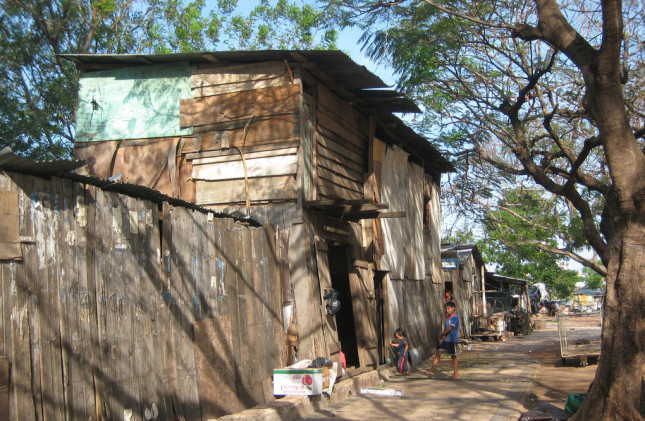Brazil’s Dilma Rousseff: Not a Coup but Payback for Systemic Corruption
By Dady Chery and Gilbert Mercier
In a public open vote, Brazil’s lower house voted overwhelmingly on April 17, 2016 to impeach President Dilma Rousseff. The tally of 367 for impeachment, as opposed to 137 against and 7 abstentions, far exceeded the two-thirds majority that was required. Rousseff says it’s a coup; the mainstream media say it’s a coup; and the alternative press, from the pro-Russian anti-imperialist left to the neoliberal fake left, says it’s a coup. This absurd consensus alone should tell everyone that it is not a coup. To say that the political crisis in Brazil is a soft coup d’état, organized by the United States, is at best a simplification of the situation and at worst a poor representation of reality. After 14 years of Partido dos Trabalhadores (PT, or Workers’ Party), the Brazilian public has grown profoundly disappointed with a government that has failed, not only to keep its promise to clean up Brazil’s systemic corruption but also to avoid becoming tainted by this corruption. Inequality, social injustice, and racism are practically unchanged. Rousseff was elected with the expectation that the criminals of Brazil’s military dictatorship would be brought to justice, but instead of pursuing them, she promoted what she called a “national reconciliation.” Under both Dilma Rousseff and her predecessor Luiz Inacio Lula da Silva, Brazil grew its police and military to unprecedented levels in peacetime and became an active handmaiden to US imperialism in the occupation of countries like Haiti. It took Lula and Dilma’s fake socialism to invade Haiti, not Brazil’s military dictatorship.
Ms. Rousseff’s legal troubles should rather be viewed as a sign that Brazil’s justice system is sufficiently well to take down the country’s top bankers, industrialists, and elected officials. This is a distinction that few countries can claim: certainly not the US where corrupt bankers were given a bailout after crashing the economy, and definitely not France where former President Nicolas Sarkozy was not impeached despite various accusations during his tenure. In fact, Sarkozy is making a political comeback despite five open legal cases of alleged corruption against him. Rousseff’s desperate attempts to fight the impeachment have only aggravated her situation. The lower house vote followed a clumsy and unsuccessful bid to grant temporary immunity to Lula after his arrest by appointing him to a cabinet post. Rousseff will likely lose the next impeachment vote in the senate, which requires only a simple majority. More and more senators are turning away from her, especially since her New York trip on April 22, 2016, during which she appealed to the United Nations to intervene on her behalf, in a move that was widely seen as an insult to Brazil’s national sovereignty.
Rousseff argues that unlike her political colleagues who have been ensnared in the Petrobras scandal (also called operação lava jato, or operation carwash), she did not launder money, embezzle public funds, or hide her wealth in offshore bank accounts. She is formally accused of using public funds from state banks to cover up her government’s large budget deficit in 2014 while she was up for reelection. In Brazil, the use of such funds to cover government deficits was previously legal but is no longer so. The connection to her reelection is damning when one realizes that nearly all the cases of corruption uncovered in her party have involved kickbacks to finance her campaign, which succeeded by only three percentage points over the opposition and would have certainly failed without those large infusions of cash.
The left’s main argument in support of its soft coup theory is to say that the US is instigating an attack on BRICS; but a new Brazilian government will probably not withdraw from BRICS, for the simple reason that, in this alliance, Brazil’s trade of minerals and agricultural goods is substantive and essential to its economy. In the unlikely event that it should pull out, the impact on BRICS will be limited. From an economic, strategic, and military standpoint, the core of the alliance consists of Russia and China. In terms of geopolitics, Iran, which is not formally in BRICS, is also a key strategic ally that could counterbalance any potential defection from Brazil. Geopolitical considerations aside, most ordinary Brazilians are unaware of BRICS. Instead, they are reminded daily of the government’s corruption by the high taxes they pay and the interrupted public projects that should have benefited from the funds that were embezzled, and for which entire neighborhoods were displaced. The most startling among these projects include unfinished public transportation works, airport terminals, aquariums, and apartment buildings: empty shells that stand as visual testaments to Brazil’s endemic corruption.
There is no reason why the US should want to get rid of Dilma Rousseff and Lula da Silva, both of whom have been paragons of humanitarian imperialism. After a US-orchestrated coup against democratically elected Haitian President Jean-Bertrand Aristide in February 2004, Bill and Hillary Clinton arranged with Lula’s Minister of Foreign Affairs, Celso Amorim, to occupy Haiti with Brazilian troops, using the UN peacekeepers as a convenient cover. This was an unprecedented move against a country that was not at war. As a carrot, Brazil was vaguely promised a possible seat on the UN Security Council. For more than a decade, Brazil trained its troops and tested its military technology in Haiti, and for nearly all this time Brazil commanded the occupying troops of an expanded UN mission in Haiti (MINUSTAH). Brazilian generals justified the occupation by the fact that Haiti was not a dangerous assignment. By the time Celso Amorim became Rousseff’s Minister of Defense in 2011, there had been numerous calls by Haitians for the withdrawal of the UN occupation and many examples of rapes, killings, and other abuses by MINUSTAH troops. Nevertheless Amorim did not withdraw Brazil from the UN mission. More recently, Amorim reappeared as the Head of the Organization of American States’ (OAS) contingent that oversaw Haiti’s fraudulent elections of August 9 and October 25, 2015 on behalf of the US.
One of the most repulsive and hypocritical aspects of Roussef’s presidency has been the traffic of Haitians to Brazil, since the 2010 earthquake, to serve as slave labor for corrupt construction companies that supported her election campaigns and are shunned by Brazilian workers. The traffic continues at the rate of 75 Haitians per day. Many Haitians have died unnoticed while building stadiums for the World Cup and working on unpopular hydroelectric and mining projects that have deforested the Amazon. In one fell swoop, Dilma’s administration trampled the rights of the indigenous, degraded the environment of Brazil, and assisted the US goal to depopulate Haiti of its potentially troublesome young educated males.
In Brazil, as in France and most countries worldwide, citizens are fed up with their corrupt political class. Brazil suffers from a deep social malaise. The rich and even the middle class live in fortresses guarded by private security. Meanwhile the poor, who are mainly blacks and mulattoes, are reduced to the misery of the favelas. Lula has been celebrated by the poor and some of the left for the bolsa familia: a social program that subsidizes education by allocating funds to impoverished parents for every child in school. It is by this gimmick that the Workers’ Party won the poor people’s vote. In a blatant contradiction, however, Lula and Dilma have treated the favelas like occupied territories where Brazil wages war on its own poor. The massive militarized police that are “pacifying” the favelas received their training and desensitization in places like Port-au-Prince’s slum Cite Soleil. The problem with Dilma Rousseff, who is often presented as a leftist firebrand, and her political party, which carries essentially a communist name, is that, just like the pseudo-socialist Francois Hollande in France, she represents a fake left that serves the interests of the super-rich and is thoroughly corrupt.
There is no coup against Rousseff. Most Brazilians have simply become wise to her act and want her to go. On May 11, the Brazilian Senate will probably ask her to step down and stand trial by a committee of senators headed by the chief Supreme Court justice; and by January 2017, she and the rest of her clan will likely be permanently removed from office. This will prevent Lula from seeking the presidency, which he could do again, or promoting a candidate like Celso Amorim. Let Dilma and all the rest cry “coup!” Justice will pursue its course. Dilma should never have been reelected, and her impeachment might well be an early step toward a more representative democracy in Brazil. Perhaps the favelas will advance the job by rising up in a samba of Brazilian noite em nossos pés (nuit debout).
UPDATES
UPDATE #1, May 12, 2016. In a vote of 55 to 22, Dilma Rousseff was suspended from her post by the Brazilian Senate.
UPDATE #2, August 10, 2016. In a vote of 59 to 21, Dilma Rousseff was indicted by the Brazilian Senate. The impeachment trial will go forward, and her final removal from office will require a two-thirds vote from the Senate.
UPDATE #3, August 31, 2016. In a vote of 61 to 20, Dilma Rousseff was impeached by the Brazilian Senate. The count for impeachment exceeded 75 percent of the Senate, which was well above the required 66 percent. Rousseff was found guilty of “criminal irresponsibility” and permanently removed from office. Haitians have known about this criminal irresponsibility for some time, from her collaboration with Bill and Hillary Clinton in the military occupation of Haiti, including the support of abusive Brazilian United Nations (MINUSTAH) troops, promotion of fraudulent elections and support of the dictator Michel Martelly, and finally, her abetment of the traffic of Haitians to Brazil for slave labor.
Editor’s Note: Dady Chery is the author of We Have Dared to Be Free, and Gilbert Mercier is the author of The Orwellian Empire. Photographs one and three from the archive of Editorial J; two from the archive of Blog do Planalto; four by Dany 13; and six from the archive of Ministerio das Relacoes Exteriores. This article is also available in Portuguese. For a French-language interview of Gilbert Mercier on this topic on Sputnik France, click here.
Dilma Rousseff, do Brasil: Não Golpe, e sim Reparação por causa de Corrupção Sistêmica
Por Dady Chery e Gilbert Mercier
Em votação pública aberta, a câmara baixa do Brasil votou esmagadoramente em 17 de abril de 2016 pelo impeachment de Dilma Rousseff. Os votos, 367 favoráveis a impeachment, em contraste com 137 contra e 7 abstenções, excederam em muito a maioria de dois terços necessária. Rousseff diz que é golpe; a mídia convencional diz que é golpe; e a imprensa alternativa, da esquerda anti-imperialista pró-russa à falsa esquerda neoliberal, diz que é golpe. Só esse absurdo consenso deveria deixar claro para todo mundo que não é golpe. Dizer que a crise política no Brasil é golpe de estado suave, organizado pelos Estados Unidos é, na melhor das hipóteses, simplificação excessiva e, na pior, descrição errada da realidade. Depois de 14 anos de Partido dos Trabalhadores (PT), o público brasileiro chegou a alto grau de desapontamento com governo que não apenas deixou de cumprir sua promessa de acabar com a corrupção sistêmica do Brasil como, também, fracassou em não deixar-se contaminar por essa corrupção. Desigualdade, injustiça social e racismo estão praticamente na mesma. Embora Rousseff tenha sido eleita com a expectativa de que os criminosos da ditadura militar do Brasil viessem a ser levados à justiça, ela promoveu o que chamou de “reconciliação nacional” em vez de perseguir aquele objetivo. Nos governos tanto de Dilma Rousseff quando de seu predecessor Luiz Inacio Lula da Silva o Brasil expandiu sua polícia e sua instituição militar a níveis sem precedentes em tempo de paz e tornou-se ativo parceiro subserviente do imperialismo dos Estados Unidos – US na ocupação de países como o Haiti. A invasão do Haiti foi perpetrada sob a égide do falso socialismo de Lula e Dilma, não da ditadura militar do Brasil.
Os problemas legais da Sra. Rousseff devem ser vistos antes como sinal de que o sistema de justiça do Brasil está suficientemente em forma para colocar atrás das grades banqueiros, empresários e autoridades eleitas do mais alto nível. Essa é uma distinção de que poucos países podem gabar-se: certamente não os US, onde banqueiros corruptos receberam socorro financeiro depois de esfrangalharem a economia, e definitivamente não a França, onde o ex-Presidente Nicolas Sarkozy não foi impeached a despeito de diversas acusações durante seu mandato. Na verdade, Sarkozy está voltando politicamente, a despeito de cinco processos de alegada corrupção contra ele. As tentativas desesperadas de Rousseff de combater o impeachment só têm agravado a situação dela. À votação na câmara baixa seguiu-se a esforço canhestro e malsucedido de obtenção de imunidade temporária para Lula após a detenção deles, mediante nomeação dele para posto no gabinete. Rousseff provavelmente perderá a próxima votação do impeachment no senado, que requer apenas maioria simples. Cada vez mais senadores a rejeitam, especialmente depois da viagem dela a New York em 22 de abril de 2016, durante a qual ela apelou para que as Nações Unidas interviessem em seu favor, em manobra que foi amplamente vista como insulto à soberania nacional do Brasil.
Rousseff argumenta que, diferentemente de seus colegas políticos que têm sido emaranhados no escândalo da Petrobrás (também chamada operação lava jato), ela não lavou dinheiro, não praticou apropriação indébita de fundos públicos, nem escondeu seu patrimônio em contas bancárias offshore. Ela é formalmente acusada de usar fundos públicos de bancos estatais para encobrir seu grande déficit orçamentário de governo em 2014, quando por concorrer a reeleição. No Brasil, o uso de tais fundos para cobrir déficits do governo era legal anteriormente, mas não mais o é. A conexão com a reeleição dela revela-se extremamente crítica quando se entende que praticamente todos os casos de corrupção descobertos no partido dela envolveram kickbacks* para financiamento de sua campanha, que prevaleceu em apenas três pontos percentuais sobre a oposição e teria certamente fracassado sem tais grandes infusões de dinheiro.
O principal argumento da esquerda em apoio a teoria de golpe suave é dizer que os US estão instigando ataque ao BRICS; contudo, novo governo brasileiro provavelmente não se retrairá do BRICS, pela simples razão de que, naquela aliança, o comércio, pelo Brasil, de minerais e bens agrícolas é substantivo e essencial para a economia do país. Na improvável eventualidade de saída, o impacto sobre o BRICS será limitado. De ponto de vista econômico, estratégico e militar, o cerne da aliança consiste em Rússia e China. Em termos de geopolítica o Irã, que não está formalmente no BRICS, é também aliado estratégico que poderia contrabalançar qualquer defecção em potencial do Brasil. Considerações geopolíticas à parte, a maior parte dos brasileiros comuns nem sabe da existência do BRICS. Em troca, é lembrada diariamente da corrupção do governo por meio dos altos impostos que paga e dos projetos públicos interrompidos que deveriam ter-se beneficiado dos fundos que foram apropriados indebitamente, e para efeito dos quais bairros inteiros foram desalojados. Os mais espantosos desses projetos incluem obras de transporte público não terminadas, terminais de aeroporto, aquários e prédios de apartamentos: arcabouços vazios que jazem como testemunhos visuais da corrupção endêmica do Brasil.
Não há motivo pelo qual os US desejem livrar-se de Dilma Rousseff e Lula da Silva, ambos os quais têm sido epítomes do imperialismo humanitário. Depois de golpe orquestrado pelos US contra o Presidente eleito do Haiti Jean-Bertrand Aristide em fevereiro de 2004, Bill e Hillary Clinton combinaram com o Ministro de Relações Exteriores de Lula, Celso Amorim, a ocupação do Haiti com tropas brasileiras, sendo usados os pacificadores das Nações Unidas – UN como encobrimento conveniente. Foi manobra sem precedentes contra país que não estava em guerra. Como incentivo, o Brasil recebeu a vaga promessa de possível assento no Conselho de Segurança das Nações Unidas – UN. Por mais de década o Brasil treinou suas tropas e testou sua tecnologia militar no Haiti e, durante praticamente todo esse tempo, comandou as tropas ocupadoras de missão expandida das UN no Haiti (MINUSTAH). Generais brasileiros justificaram a ocupação invocando o fato de o Haiti não representar missão perigosa. Quando Celso Amorim tornou-se Ministro da Defesa de Rousseff em 2011, houve numerosos apelos de haitianos pela retirada da ocupação da UN e muitos exemplos de estupros, assassínios e outros abusos por soldados da MINUSTAH. Nada obstante, Amorim não tirou o Brasil da missão das UN. Mais recentemente, Amorim reapareceu como Dirigente do contingente da Organização dos Estados Americanos (OAS) que supervisou as eleições fraudulentas do Haiti de 9 de agosto e 25 de outubro de 2015, no interesse dos US.
Um dos mais repulsivos e hipócritas aspectos da presidência de Roussef tem sido o tráfico de haitianos para o Brasil, desde o terremoto de 2010, para servirem em trabalho escravo para corruptas empresas de construção que apoiaram as campanhas de eleição dela e são rejeitadas por trabalhadores brasileiros. O tráfico continua na base de 75 haitianos por dia. Muitos haitianos já morreram sem sua morte ser noticiada enquanto construíam estádios para a Copa do Mundo e trabalhavam em projetos impopulares de hidroelétricas e mineração que têm desflorestado a Amazônia. De uma tacada só, a administração Dilma tripudiou sobre os direitos dos indígenas, degradou o ambiente do Brasil, e promoveu o objetivo dos US de despovoar o Haiti de seus potencialmente criadores de problemas jovens do sexo masculino instruídos.
No Brasil, como na França e na maioria dos países mundo a fora, os cidadãos estão fartos de sua classe política corrupta. O Brasil sofre de profundo mal-estar social. Os ricos e até os da classe média vivem em fortalezas protegidas por segurança privada. Por outro lado os pobres, que são principalmente pretos e mulatos, vivem reduzidos à miséria das favelas. Lula tem sido elogiado pelos pobres e por algumas pessoas da esquerda por causa de programa social que subsidia a educação por meio da alocação de fundos a pais pobres para cada criança na escola. Foi por meio desse artifício que o Partido dos Trabalhadores conseguiu o voto das pessoas pobres. Em flagrante contradição, porém, Lula e Dilma têm tratado as favelas como território ocupado onde o Brasil conduz guerra a seus próprios pobres. A poderosa polícia militarizada que está “pacificando” as favelas recebeu seu treinamento e sua dessensiblização em lugares como a favela de Cité Soleil em Port-au-Prince. O problema de Dilma Rousseff, que é amiúde apresentada como agitadora esquerdista, e de seu partido, que porta nome essencialmente comunista é que, do mesmo modo que o pseudossocialista François Hollande na França, ela representa esquerda falsa que serve aos interesses dos superricos e é totalmente corrupta.
Não há golpe contra Rousseff. A maioria dos brasileiros simplesmente percebeu o fingimento dela e quer que ela se vá. Em 14 de maio, o Senado brasileiro provavelmente pedirá que ela abra mão do cargo e sofra julgamento por comissão de senadores encabeçada pelo juiz presidente do Supremo Tribunal; e, em janeiro de 2016, ela e o restante de seu clã provavelmente serão permanentemente removidos do cargo. Isso impedirá Lula de buscar a presidência, o que ele poderia fazer de novo, ou promover candidato como Celso Amorim. Deixemos que Dilma e todo o resto gritem “golpe!” A justiça seguirá seu curso. Dilma nunca deveria ter sido reeleita, e o impeachment dela bem poderia ser passo rumo a democracia mais representativa no Brasil. Talvez as favelas antecipem o ato levantando-se em samba de noite de pé (nuit debout) brasileira.
______________________________________________
*Kickback – Inglês informal. Pagamento ilícito feito a alguém em troca de esse alguém facilitar transação ou nomeação. V. Oxford.
Nota do Editor: Dady Chery é a autora de We Have Dared to Be Free, and Gilbert Mercier é o autor de The Orwellian Empire.
Related Articles






















One Response to Brazil’s Dilma Rousseff: Not a Coup but Payback for Systemic Corruption
You must be logged in to post a comment Login